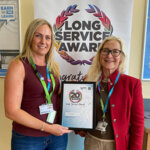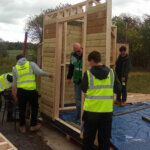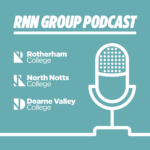Daniel Collins
Systems Training Engineer
Meet Daniel Collins, Systems Training Engineer at the National Fluid Power Centre (NFPC), who has recently joined our team from Rolls Royce.
We caught up with Daniel to ask a few questions about his previous experience and how he plans to contribute to the business.
How did you get to where you are today?
“After studying motor vehicle at college, I then went on to study a two-year apprenticeship as a lift truck and powered access engineering technician. I learned about hydraulic systems in the course while repairing gas, diesel, and electric forklift trucks. From here, I then went onto another apprenticeship with Rolls Royce, where I transferred my current knowledge to work more on industrial-based equipment, and Robotics.”
What was your background at Rolls Royce?
“I worked as an Electrically Biased Maintenance Engineer there for ten years. My role involved fixing machines that make aerospace parts for jet engines. I also dealt with the hydraulics and pneumatics behind these systems, so you could say I was a one stop shop for anything mechanical. While there, I led on several projects improving machines as well as upgrading the associated control systems.”
Why did you decide on moving into the education sector?
“Over the years, I have trained many apprentices, which I have found to be a really rewarding experience. For this reason, I think the NFPC will be a great career for me, as I am passionate about this industry and want to help shape the next generation of engineers.”
Have you seen any changes in the industry?
“Nowadays, hydraulic systems have changed from being on levers to having electronic control panels. As a fault could equally be electrical or hydraulic, the industry is calling out for multiskilled people who can resolve either issue. By sending out one engineer, companies can operate more efficiently, saving both time and money.”
Are you working on any notable projects at the moment?
“At the moment, I am helping alter the curriculum around Introduction to Electrical and Electronics. After reviewing feedback, many learners do not have an advanced electrical background, meaning that some elements of the course have been hard to understand. To make their journey smoother, we are simplifying the guidance material and introducing more practical tasks that complement their learning. Rather than a one-day course, we plan on extending for an additional day and launch new courses relating to Electro-Hydraulics.”
How do you see the NFPC evolving with your presence?
“With my expertise in hydraulics, pneumatics, electrical systems and robotics, I plan on adding to the already robust curriculum. For instance, we are looking at developing a Stage 2 Electro- Hydraulics Course involving Sensor Technology, Systems Management and Predictive Maintenance Techniques. This will be a follow on from Stage 1 Electro-Hydraulics (under development) which will form the prerequisite to the new CETOP Competence3 Based Qualification (FPE1). The NFPC is the first Centre in the UK and Europe to offer this new Qualification.”
To find out more about the courses at the National Fluid Power Centre, please visit: https://www.nfpc.co.uk/courses/
Back to Case Studies












